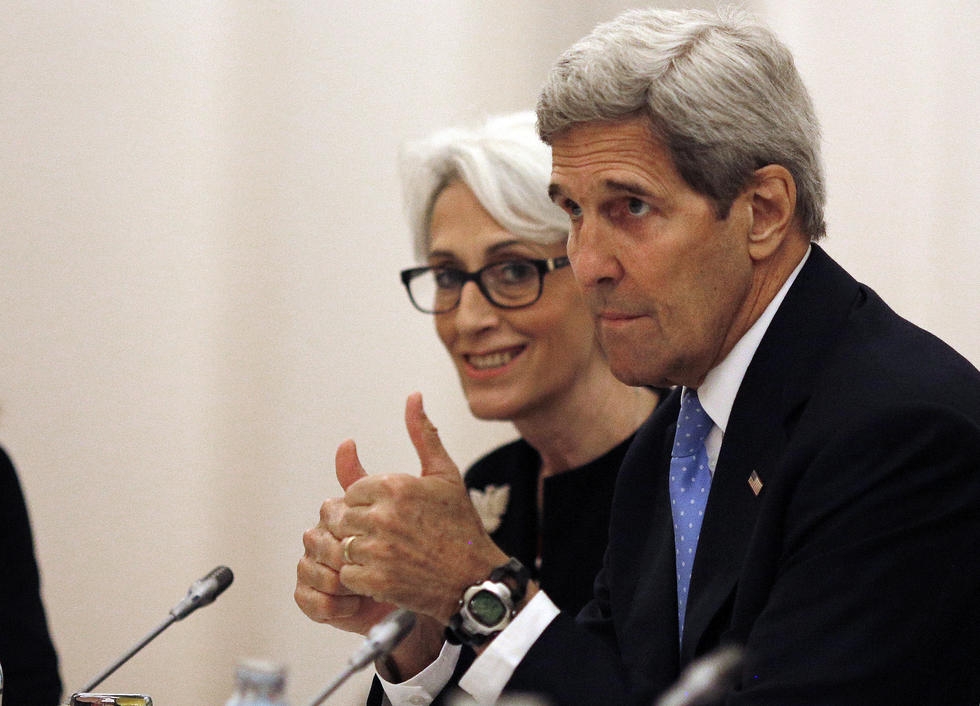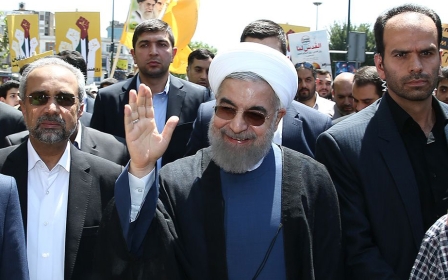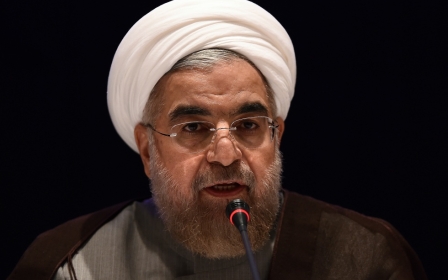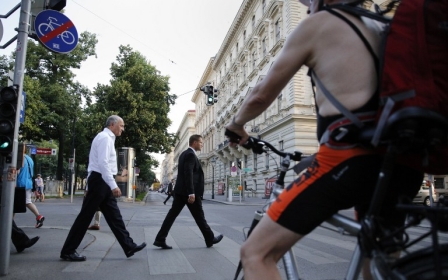Iran nuclear deal ‘very close’

Iran and major powers are seeking to clinch an historic nuclear deal on Monday, with both sides saying an accord on ending a 13-year stand-off is within reach.
The latest set of nuclear talks have dragged on for more than two weeks.
Iran's foreign minister said on Monday he believed there should be no further extension to nuclear talks with major powers but he would negotiate "as long as necessary".
"I always believe there shouldn't be any extension but we could work as long as necessary to finish this," Mohammad Javad Zarif said as he met his Chinese counterpart Wang Yi in Vienna.
The talks are meant to nail down an agreement curbing Iran's nuclear activities and make it extremely difficult for Tehran to develop the atomic bomb.
The Islamic Republic denies this is its intent.
Despite optimism over the weekend that a deal would be reached, finalising a framework accord struck in April has proved difficult, with talks stumbling on the exact timing of sanctions relief and Iran's desire to have a UN conventional arms embargo lifted.
"We have come a long way. We need to reach a peak and we're very close," President Hassan Rouhani said in Iran on Sunday, the ISNA news agency reported on the 16th day of talks in Vienna.
"We are so close that if you look down from below you feel as if we have got there, but when you do get there you know there are still some steps to take."
Rouhani is due to address Iran on state television at 17:30 GMT.
A senior US State Department official said on Sunday that "major issues remain to be resolved" but Secretary of State John Kerry said he was "hopeful".
An accord, if implemented properly, could end 13 years of failed diplomacy and threats of military action.
Staggered relief
In return Iran will be granted staggered relief from painful sanctions, although the six powers – the P5+1 made up of the United States, Britain, France, Germany, Russia and China – insist on the option of re-imposing restrictions if Tehran breaches the agreement.
Foreign ministers from all seven countries were expected to be present in Vienna on Monday.
"I hope we are finally entering the final phase of these marathon negotiations. I believe it," French Foreign Minister Laurent Fabius, who cancelled a trip to Africa to stay at the talks, said on Sunday.
The current diplomatic effort dates back to Rouhani's coming to power in 2013.
He sought a rapprochement with the West and an end to his country's diplomatic and economic isolation.
The prospect of thawing relations between Iran and the United States unsettles many in the Middle East, however, not least Tehran's rivals Saudi Arabia and other Gulf monarchies.
Israel is also deeply concerned, complaining that the proposed deal will fail to stop Iran developing the bomb.
Several deadlines have been missed over the course of the latest round of talks, although diplomats insist that the technical aspects of the highly complex agreement are as good as finalised.
On Monday, the terms of a 2013 interim deal freezing parts of Iran's nuclear programme in return for minor sanctions relief expire, although this has been extended several times already.
Even if a deal is reached, it will prove difficult to win over the US Congress, top Republican and Senate Majority Leader Mitch McConnell said in an interview broadcast on Sunday.
Middle East Eye propose une couverture et une analyse indépendantes et incomparables du Moyen-Orient, de l’Afrique du Nord et d’autres régions du monde. Pour en savoir plus sur la reprise de ce contenu et les frais qui s’appliquent, veuillez remplir ce formulaire [en anglais]. Pour en savoir plus sur MEE, cliquez ici [en anglais].




